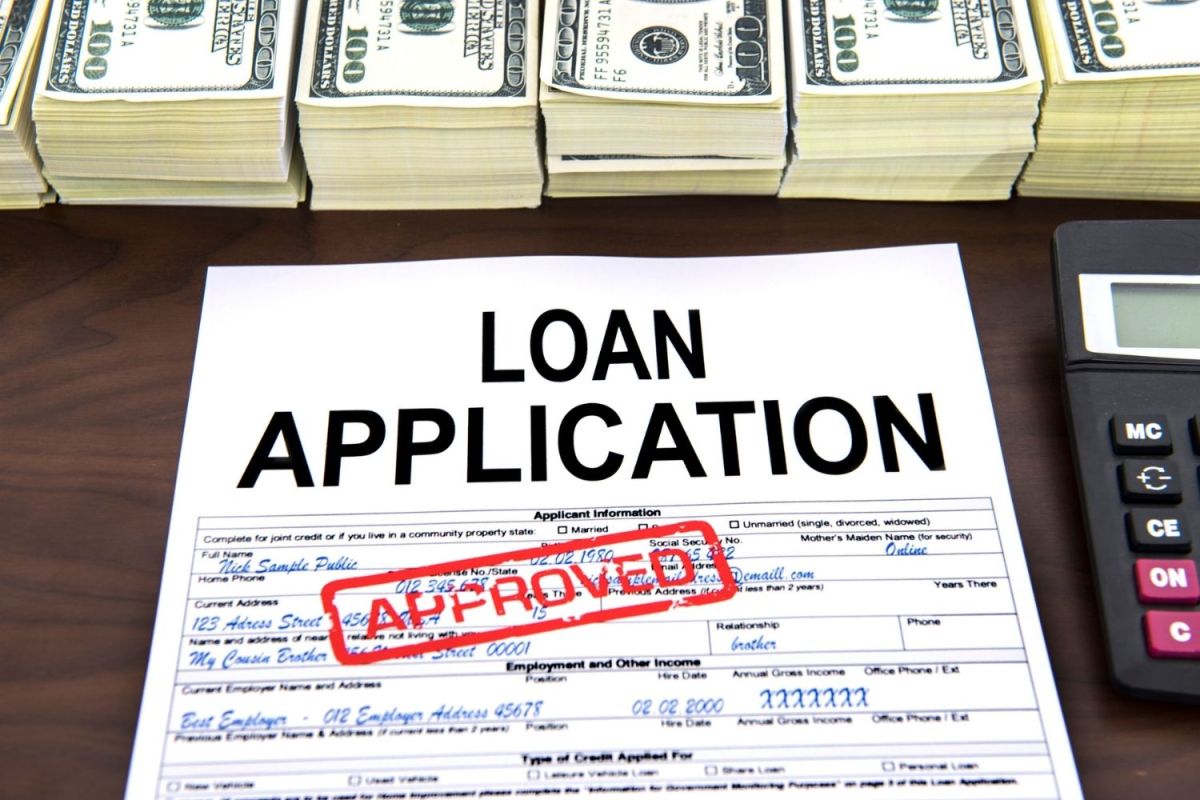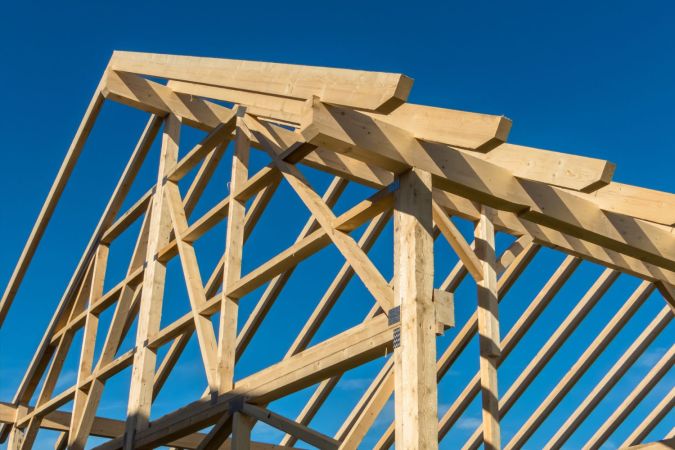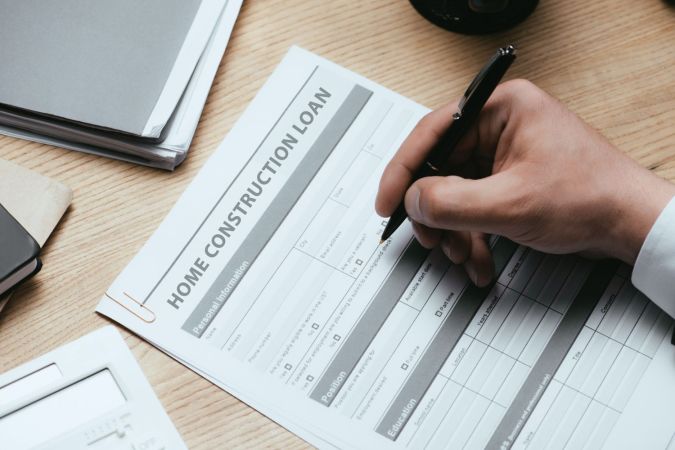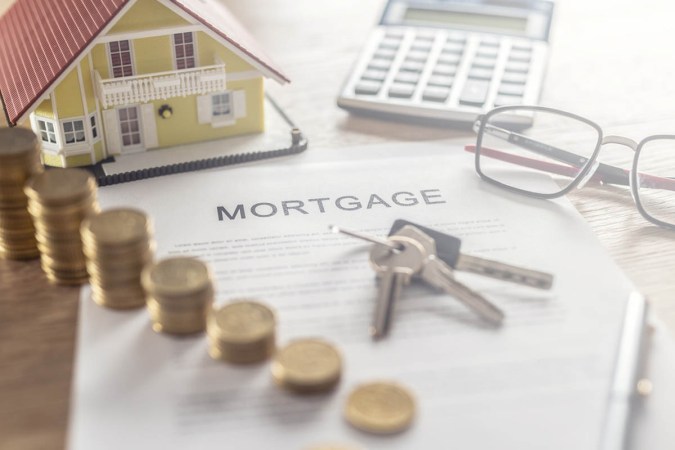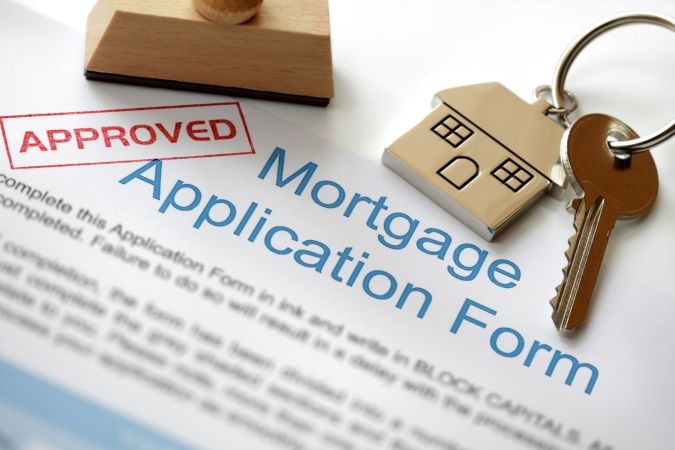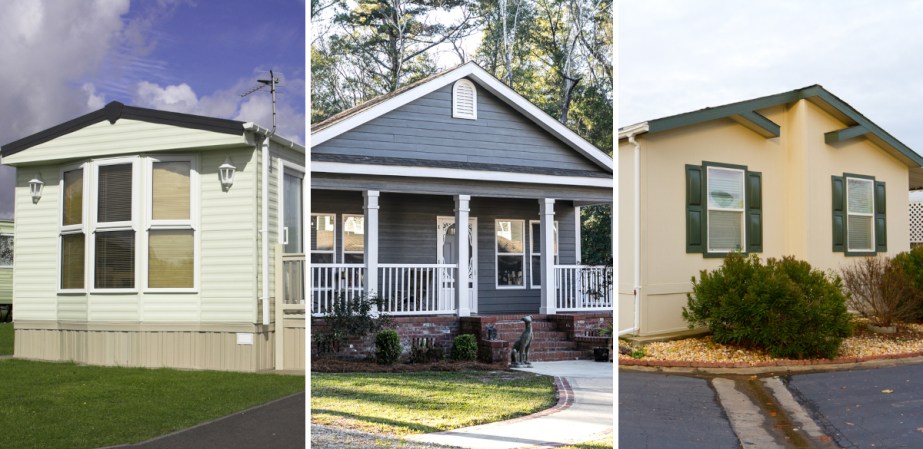We may earn revenue from the products available on this page and participate in affiliate programs. Learn More ›
A new manufactured home cost an average of $76,400 for a single build in November 2021 and $139,900 for a double size in the same time period, according to the U.S. Census Bureau. For anyone who is considering buying a mobile home, this is good information to have, and fortunately there are loans available to help people finance a mobile, or manufactured, home. How hard is it to get a loan for a mobile home? That can depend on each individual buyer’s specific situation. It’s important for mobile home buyers to know what types of loans are available, how to assess their finances to determine what kinds of loans are available to them, and how to find and apply for the best mobile home loans. Follow the steps below, which will show you how to buy a mobile home using a loan.
Before You Begin…
The difference between a mobile home and a manufactured home can be a common point of confusion for buyers, but the difference is actually quite simple. To be considered a mobile home, it must have been factory-built prior to the introduction of the National Mobile Home Construction and Safety Standards Act of 1974 and the HUD Manufactured Home Construction and Safety Standards introduced in 1976. Manufactured homes are those that were factory-built after 1976 once the new safety standards were officially in place. Lenders tend to avoid financing pre-1976 mobile homes since they are less safe and there’s more chance that the home will be damaged or destroyed. However, despite the difference, the terms “mobile home” and “manufactured home” are often used interchangeably.
It’s also important to note that a mobile home loan is different from a traditional home loan. For instance, some programs may have stricter income limits. The home may also have to meet certain criteria. For instance, if the home is on wheels, it may qualify as a vehicle, which can affect the loan type. There may also be size requirements for the home and different classifications based on the foundation, just for starters.
STEP 1: Assess your finances and determine a loose budget.
Mobile home buyers who are wondering how to get a loan for a mobile home can start by assessing their finances. They can start by looking at their credit score, as that may affect what types of loans they qualify for and can be a direct influencer on the interest rates they will pay. In general, the higher a person’s credit score, the lower the interest rates they can qualify for. Borrowers should also see how much they can reasonably put toward a down payment. Another important factor is looking at the debt-to-income ratio (DTI), which compares the amount of current debt the borrower has against their regular monthly income. The borrower should assess whether they can take on the loan payments based on how much money they are bringing in and the amount of debt they are currently paying off, and in cases where the borrower has a high DTI, they may find it much harder or even impossible to get a loan. Borrowers can use an online manufactured home loan calculator to find out how loan costs and variables in interests rates will fit into their current budget.
If the borrower finds that they are not in a good place financially to take on a loan, they can work on fixing any issues before applying for a loan. Options can include debt consolidation, adjusting lifestyles to fit budgets, or finding ways to bring in additional income.
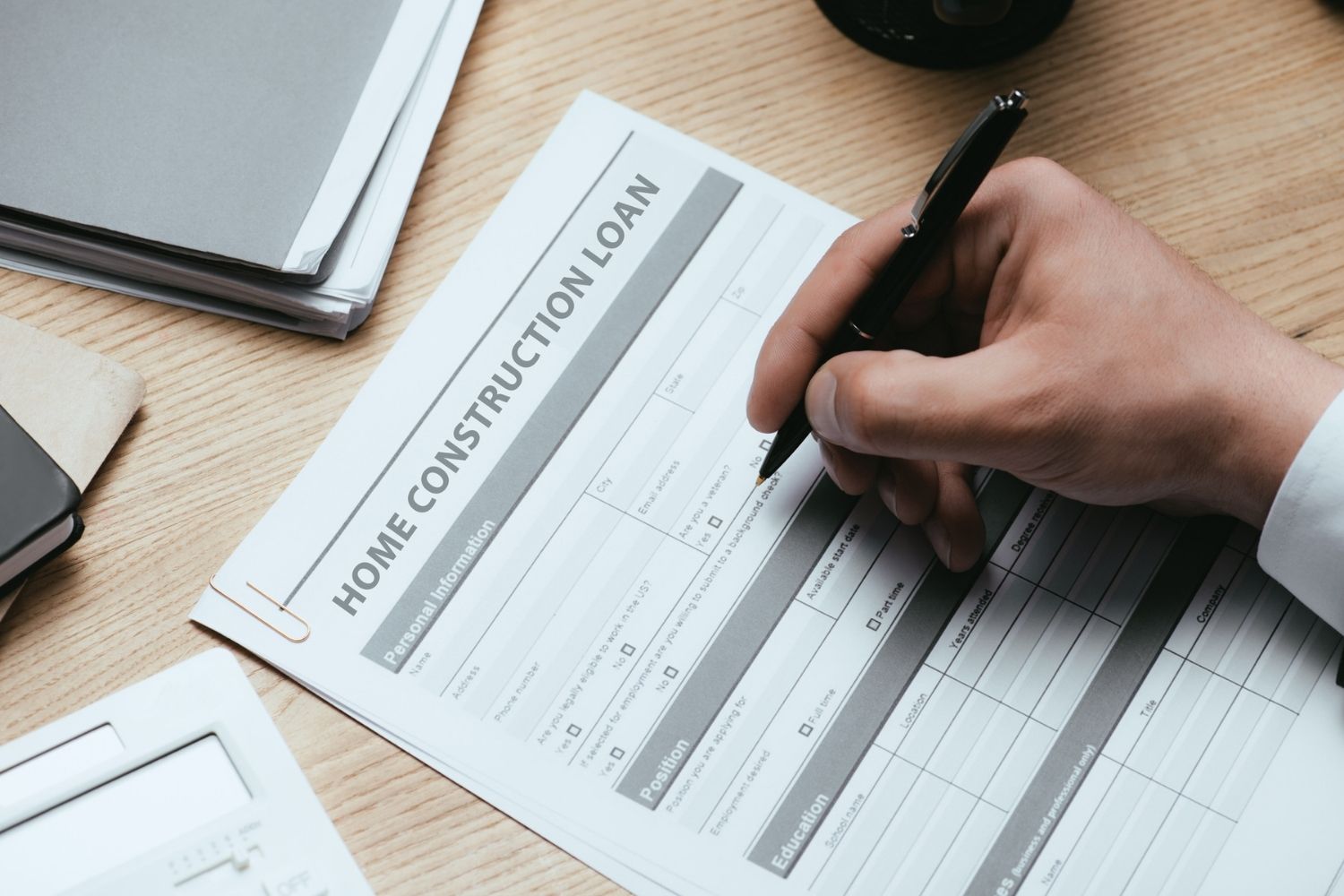
STEP 2: Learn more about the types of mobile home loans available and their costs.
Buyers looking for mobile home financing should take some time to familiarize themselves with all the types of loans available to find the option that works best for them. Surprisingly, some mobile or manufactured homes may actually qualify for more traditional home loans. They often have to fit certain criteria, including meeting specific size requirements, the borrower owning rather than leasing the land, the home having a permanent chassis, and whether the home is considered personal property or real estate for tax purposes. Examples of conventional loans that may cover manufactured homes include the Fannie Mae and Freddie Mac programs.
Government loan programs through the FHA, VA, and USDA may also cover manufactured homes. There are also chattel mortgages, sometimes called chattel loans, which are specifically created with the purpose of creating a loan for manufactured homes and other movable property. Finally, another common option is to look into personal loans, though these often come with much higher interest rates. Seller/manufacturer financing might also help someone get a mobile home.
STEP 3: Determine whether you need a loan for the land only, the mobile home only, or both.
Remember, people who live in mobile or manufactured homes often have to cover the cost of the land itself. Sometimes the land may be leased for a certain fee each month, but if the land is leased, that can affect whether the borrower is eligible for certain types of loans. For instance, people seeking loans for mobile homes in parks might need to look into specific types of loans.
Certain loans may cover purchase of both the land and the mobile home. One example of this is a personal loan, which provides a set amount of money for the borrower to do with what they wish, or a Title I FHA loan, which can finance purchase of the home only, the lot only, or both the home and the lot.Otherwise, assessing finances may show that the borrower could pay outright for the land or the mobile home while financing the other. Borrowers might also work with banks that finance mobile homes with land or look for loan types that focus on financing a mobile home with land that has been purchased (not leased), such as a Title II FHA loan, which requires the home to be permanently attached to land owned by the borrower.
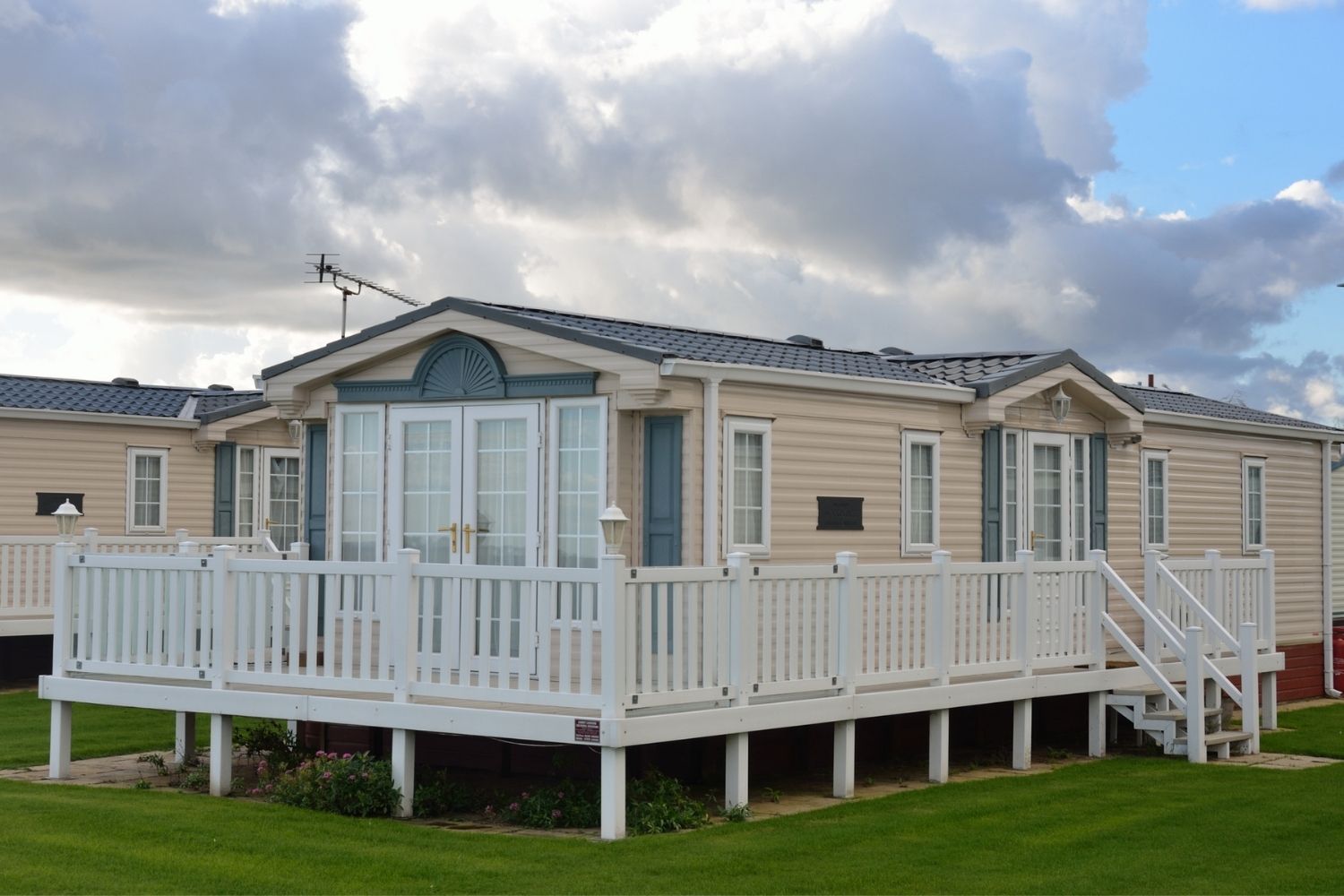
STEP 4: Request and compare quotes from potential lenders.
The next step is for the borrower to contact lenders who offer the type of loan they need. Where these loans are found depends on the type of loan the borrower has determined is right for them. For instance, many credit card companies offer personal loans. Those who are looking for more conventional home loan types might want to check with banks, credit unions, or other financial institutions.
A borrower can also choose to get quotes for different types of loans to further narrow down which loans will work for them. Some websites might also offer the ability for a potential borrower to compare lending quotes side by side. It’s important to note that quotes often come with no obligation and are usually free, so borrowers should generally be wary of lenders that want a commitment right away.
STEP 5: Apply for a loan through your chosen provider.
The final step is to apply for a loan from the provider that offers the most attractive terms and rates for the loan. The borrower can also check with lenders on how to get preapproved for a mobile home loan. It’s important to work closely with agents or loan professionals to make sure all paperwork is in order. Applying for a loan can require a wide variety of detailed paperwork, such as recent pay stubs to provide proof of income, tax returns, bank statements, proof of identity, and the loan application, as a few examples. It’s common for loan applications to also require proof of credit history. All of this paperwork is to assure that the borrower can repay the loan and that the lender is not taking on unreasonable risk by issuing a loan.
By following these five steps, mobile home buyers should be able to find the right mobile home loan for their financial situation. Just remember to get a loan only through reputable lenders, such as well-known financial institutions, government programs, well-known personal loan lenders, or programs that are linked to the manufacturer of the manufactured home. Even if a company seems well-known, it’s a good idea to check its background with consumer bureaus or organizations such as the Better Business Bureau and Consumer Reports. Be wary of finding a lender through search terms like “bad credit mobile home loans guaranteed approval.”
